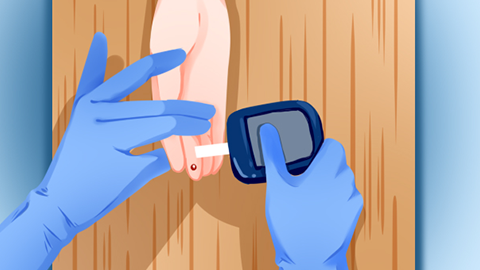What foods should be avoided with high blood sugar?
Generally, patients with high blood sugar should avoid consuming high-sugar foods, high-glycemic-index foods, high-fat and high-oil foods, alcoholic beverages, and high-salt foods to prevent blood glucose fluctuations or worsening of their condition. A detailed analysis is as follows:
1. High-sugar foods
Foods such as candy, chocolate, cakes, desserts, honey, brown sugar, and white sugar contain extremely high levels of sugar. These foods are rapidly absorbed by the body, causing a sharp increase in blood glucose levels within a short time, increasing the burden on the pancreas, and being detrimental to blood sugar control.
2. High-glycemic-index foods
Refined rice and flour products, glutinous rice items, and mashed potatoes have high GI values and are quickly digested and absorbed, leading to a rapid rise in post-meal blood glucose levels. It is recommended to replace part of the refined rice and flour with whole grains.

3. High-fat and high-oil foods
Fried foods, fatty meats, animal offal, butter, and cream are high in calories. Excessive consumption can lead to obesity, which reduces insulin sensitivity, making blood sugar more difficult to control. It may also trigger complications such as hyperlipidemia.
4. Alcoholic beverages
Alcohol in spirits, beer, and wine can affect liver metabolism, interfere with glycogen breakdown and synthesis, and cause blood glucose fluctuations. Additionally, alcohol may interact with antidiabetic medications, increasing the risk of hypoglycemia.
5. High-salt foods
Pickled foods such as pickled vegetables, salted meats, preserved vegetables, ham, sausages, and dishes with excessive added salt during cooking can increase the risk of hypertension. When hypertension coexists with high blood sugar, it accelerates vascular damage and harms vital organs such as the heart, brain, and kidneys.
In addition to avoiding the above foods, individuals with high blood sugar should maintain a bland and nutritionally balanced diet, control total daily calorie intake, eat smaller meals more frequently, combine appropriate physical activity, and regularly monitor their blood glucose levels. If blood sugar remains poorly controlled after adjusting diet and exercise, timely medical consultation is necessary, and drug therapy should be conducted under a doctor's guidance.







